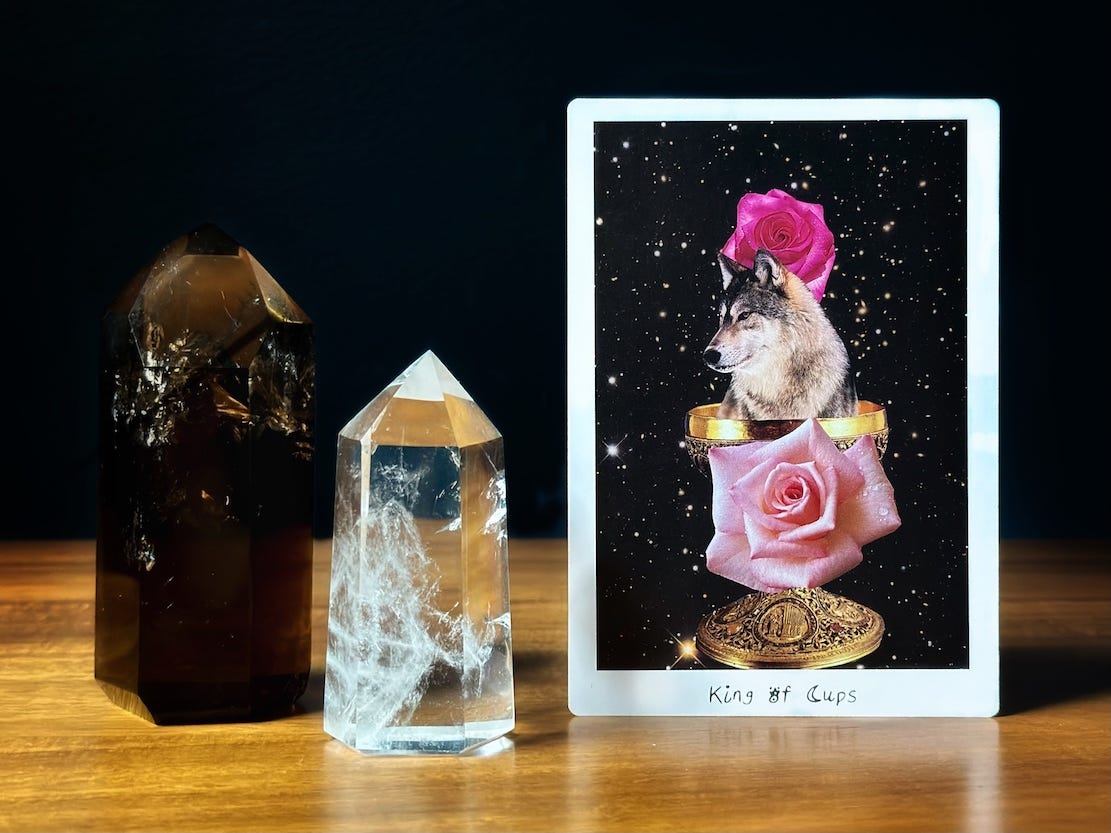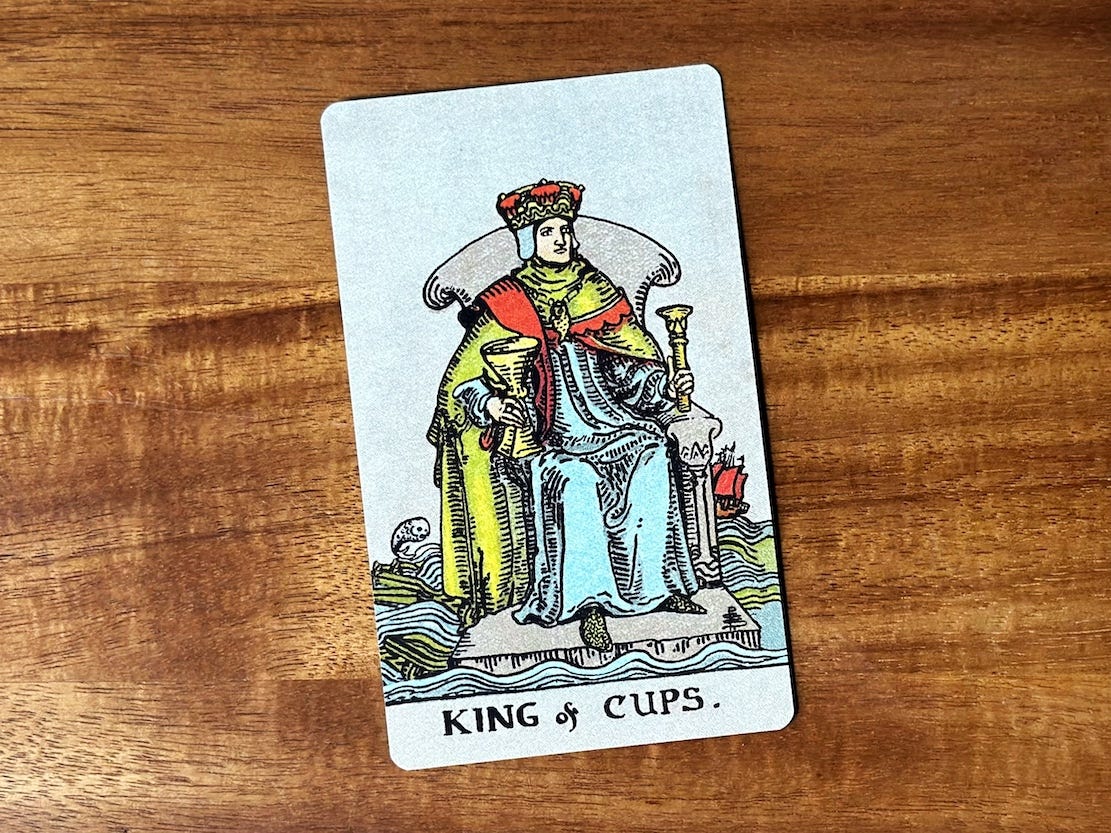It’s that time of year.
The streets of NYC are awash with figures donning gowns and sashes and tasseled caps, like some sort of Harry Potter cosplay convention. They carry bouquets or pose with engraved plaques. I dart across the street or around the block to avoid ruining their photos with my pedestrian presence. They are the graduates, bound for their next adventure.
This means it’s also time for this year’s crop of speeches to circulate — funny, stirring, inciting. Delivered from stadiums and podiums, sometimes in the rain.
I love a good commencement address. (And judging by the number of them that go viral or get made into gifty little books, so do a lot of folks.) Sure, there are often parts that don’t apply to me — language geared toward the very young or naively optimistic. But I have just as many questions as I did when donning an acrylic gown nearly two decades ago. And I welcome insights more than ever.
I’ve long harbored a not-so-secret wish that society would embrace the commencement address as a regular event, for the world at large. It’d be a little like the State of the Union, but instead of a president standing before Congress, we’d have an inspiring person, standing before some majestic backdrop, to deliver wise, inspirational words to whoever needs to hear them. A nondenominational TED talk for the soul.
I don’t begrudge graduates their day. They’ve worked hard (and possibly incurred unspeakable debt); they deserve a ceremony to mark the occasion. But all of us do hard stuff all year — hell, all life — long. We are always moving from one season to the next. How about a commencement address for middle age? Or going freelance? Or starting a family? Or navigating divorce? Or retirement? Or grief? Or a mortifying everyday experience?
Since the world has yet to grant me this, I occasionally take it upon myself to visit old commencement addresses. Sometimes I watch them, sometimes I read the transcripts. And occasionally, I’ll scribble down passages I wish to linger on. Here are some of the words I turn to when my soul needs nourishment. Perhaps they will resonate with you, too.
On hearing your inner symphony:
“This is the hard work of your life in the world, to make it all up as you go along, to acknowledge the introvert, the clown, the artist, the reserved, the distraught, the goofball, the thinker. You will have to bend all your will not to march to the music that all of those great “theys” out there pipe on their flutes. They want you to go to professional school, to wear khakis, to pierce your navel, to bare your soul. These are the fashionable ways. The music is tinny, if you listen close enough. Look inside. That way lies dancing to the melodies spun out by your own heart. This is a symphony. All the rest are jingles.
This will always be your struggle whether you are twenty-one or fifty-one. I know this from experience… if your success is not on your own terms, if it looks good to the world but does not feel good in your heart, it is not success at all. Remember the words of Lily Tomlin: If you win the rat race, you’re still a rat.” — Anna Quindlen, Mount Holyoke College 1999
On following the still, small voice:
“When you tap into what it’s trying to tell you, when you can get yourself quiet enough to listen — really listen — you can begin to distill the still, small voice, which is always representing the truth of you, from the noise of the world. You can start to recognize when it comes your way. You can learn to make distinctions, to connect, to dig a little deeper. You’ll be able to find your own voice within the still, small voice—you’ll begin to know your own heart and figure out what matters most when you can listen to the still, small voice. Every right move I’ve made has come from listening deeply and following that still, small voice, aligning myself with its power.” — Oprah Winfrey, Tennessee University 2023
On embracing failure:
"David Letterman wanted to be Johnny Carson and was not, and as a result, my generation of comedians wanted to be David Letterman. And none of us are — my peers and I have all missed that mark in a thousand different ways. But the point is this: It is our failure to become our perceived ideal that ultimately defines us and makes us unique. It's not easy, but if you accept your misfortune and handle it right, your perceived failure can be a catalyst for profound re-invention." — Conan O’Brien, Dartmouth College 2011
…and learning to course correct:
"A failure often does not have to be a failure at all. However, you have to be ready for it. Will you admit when things go wrong? Will you take steps to set them right? Because the difference between triumph and defeat, you'll find, isn't about willingness to take risks. It's about mastery of rescue." — Atul Gawande, Williams College 2012
On staying true to yourself:
“Please do not twist yourself into shapes to please. Don’t do it. If someone likes that version of you, that version of you that is false and holds back, then they actually just like that twisted shape, and not you. And the world is such a gloriously multifaceted, diverse place that there are people in the world who will like you, the real you, as you are.” — Chimamanda Ngozi Adichie, Wellesley College 2015
On finding inspiration everywhere:
“Life is sometimes hard. Things go wrong, in life and in love and in business and in friendship and in health and in all the other ways that life can go wrong. And when things get tough, this is what you should do. Make good art.
I'm serious. Husband runs off with a politician? Make good art. Leg crushed and then eaten by mutated boa constrictor? Make good art. IRS on your trail? Make good art. Cat exploded? Make good art. Somebody on the Internet thinks what you do is stupid or evil or it's all been done before? Make good art. Probably things will work out somehow, and eventually time will take the sting away, but that doesn't matter. Do what only you do best. Make good art.” — Neil Gaiman, University of the Arts 2012
On serving others:
“Service is love made visible. If you love your friends, you will serve your friends. If you love your community, you will serve your community. If you love money, you will serve money. If you love only yourself, you will serve only yourself… There is no winning. Instead, try to love and serve others, and hopefully find those who love and serve you in return.” — Stephen Colbert, Northwestern University 2011
On seizing the moment:
“I want to tell you to live in the messy world, throw yourself into the convulsion of the world. I’m not telling you to make the world better, because I don’t think that progress is necessarily part of the package. I’m just telling you to live in it. Not just to endure it, not just to suffer it, not just to pass through it, but to live in it. To look at it. To try to get the picture. To live recklessly. To take chances. To make your own work and take pride in it. To seize the moment.” — Joan Didion, University of California Riverside 1975
On kindness (oft-quoted, but too good not to include):
“What I regret most in my life are failures of kindness. Those moments when another human being was there, in front of me, suffering, and I responded…sensibly. Reservedly. Mildly.
Or, to look at it from the other end of the telescope: Who, in your life, do you remember most fondly, with the most undeniable feelings of warmth? Those who were kindest to you, I bet.
It’s a little facile, maybe, and certainly hard to implement, but I’d say, as a goal in life, you could do worse than: Try to be kinder.” — George Saunders, Syracuse University 2013
On doing it now:
“Whatever you want to do, do it now. For life is time, and time is all there is.” — Gloria Steinem, Tufts University 1987
Sometimes I wonder if the whole thing is a ruse. Do the deliverers of such speeches still grapple with practicing the wisdom they preach? Do their lives beyond the podium remain riddled with questions and yearnings and doubts?
But I know the answer: Of course, they do. Who’d like to give a speech about that?
Card of the Week
Here is this week’s card for the collective, as well as some thoughts to carry into the days ahead. As most modern readers will tell you, the tarot is not about fortunetelling, nor is it about neat, definitive answers. The cards are simply one path to reflection, a way of better knowing ourselves and others through universal themes. If this reading resonates with you, great! And if not, no worries. Take whatever may be helpful and leave the rest.

The other day, I passed a woman walking with a young boy. The woman was dressed in crisp business attire, not a hair out of place. The boy looked wind-swept and wild, like he’d just scaled a jungle gym or maybe Mount Everest.
She shouted into her phone, gesticulating wildly. “This situation is untenable!” She grew more agitated by the second. “I don’t know what else to say about the matter. It is a disgrace!” Then she rattled off a series of instructions to the poor soul on the other end of the line.
Meanwhile, the boy was playing the recorder, battling for airtime. As the woman grew louder, so did he, puffing out the melody to “Ode to Joy,” which sounded about as ridiculous as you’d imagine emanating from a plastic flute.
It was cinematic. It was absurd. It was perfect.
The scene reminded me of this week’s card, the King of Cups. The King is the ruler of emotions, a card that forms a bridge between thought and feeling, ration and emotion, conscious and unconscious.
Life is joyous, and untenable. Sometimes at the exact same time.
Water is a symbol for emotions — ever changing, swelling, flowing, ebbing. It isn’t something to conquer, but something to work with. (After all, roughly 60% of the human body is composed of it.) In the tarot, Cups are the vessel for water; the container for emotions. But in the case of the king, he not only holds a cup within his grasp, he is surrounded by water.
This scene has a lot to teach us.
The King of Cups demonstrates the ability to be present and aware of one’s emotions — a veritable sea of feeling — without being swept up by them. There are some instances, like the water within his cup, that we may grasp and feel some semblance of control over. There are many others, like the waves roiling around him, where observation and acceptance are the name of the game.
The king didn’t arrive here automatically. One imagines there was a sizeable journey — a swim, or perhaps a boat ride — that took place in order to get him there. Becoming an expert at anything, emotions included, doesn’t happen overnight. It takes practice, acknowledgment, and acceptance. (And sometimes, help and support.)
If we’re having a hard time grasping or verbalizing our emotion-scape, this card suggests calling in reinforcements — friends, loved ones, guides of all kinds. There is also the exercise of putting pen to paper, liberating what swirls beneath the surface. If you, like me, find the labels around “journaling” to feel challenging, think of it like writing answers to the questions no one asks. The questions that stillness helps us ask ourselves.
The King promises there are answers waiting within us. Ideas and guidance and a soundtrack that’s begging to be discovered. As clear and as resonant as “Ode to Joy” played with reckless abandon.










Hi Patricia! Thank you for calling this to my attention. I just read the full extent of her comments and find them troubling as well. I’ll certainly keep this in mind when compiling any round-ups moving forward. As I’d hope would be clear to all readers, I’m allied with the trans community and strive to make this a space where all feel welcome and seen.
Your work is worth the paywall! ❤️